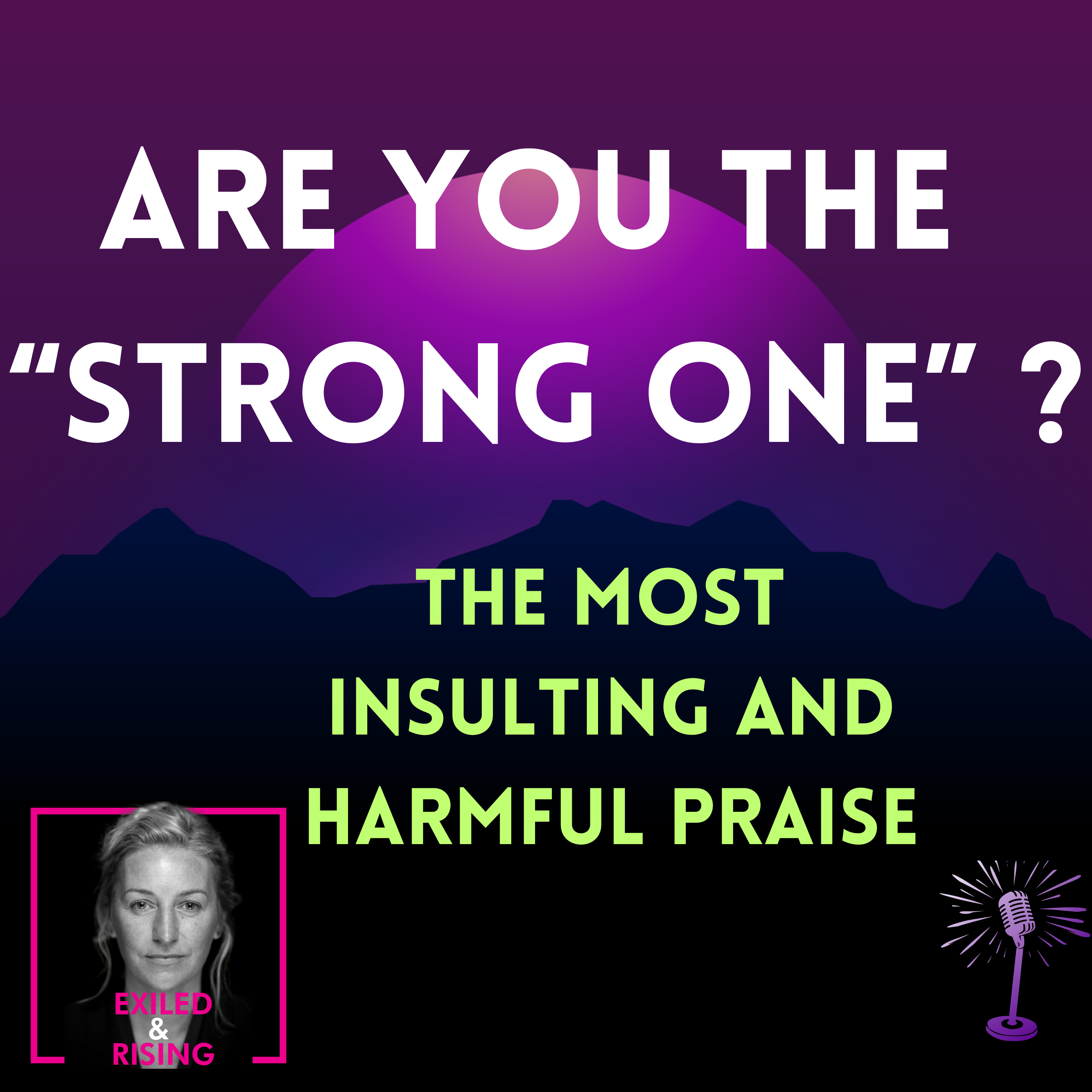Show Notes
This piece is for every survivor of abuse, including those whose pain is resurfacing now with the release of the Epstein files. ❤️PLEASE: share it on your own platforms — socials, Substack, WhatsApp, group chats. There are survivors who may never find me directly, but they can find this through you. Every share helps someone remember they are not alone ✊❤️
Book: The Trauma We Don't Talk About https://amzn.to/41SjKKL
You’ve been forced to carry silence, disbelief, and erasure for too long. May these words remind you: what was taken can be reclaimed. Not through them, but through you.
A word on tone (“revenge”) The word is hot on purpose—it captures energy often shamed in abuse survivors. The piece wisely translates that heat into lawful, values-aligned reclamation (peace, body, work, travel, friendship). That’s the difference between rumination and constructive agency—and it’s safer and more sustainable.
1. Validation of Magnitude
Abuse survivors have described not just isolated acts of abuse but a network that stole years, relationships, careers, innocence, and safety. Ana’s piece says: “Count it. Name every single thing that was taken from you.” That practice validates the truth that abuse doesn’t just harm in the moment — it robs across every domain of life. For survivors, seeing this named and honored is deeply validating.
2. Reframing Anger and “Revenge”
Survivors often feel anger that society wants to silence — especially women survivors of powerful men. “Get your revenge” here reframes revenge away from destruction and toward reclamation: “Dammit, I will have my peace back. Even for five minutes, I’ll reclaim it.” For abuse survivors (many retraumatized by delays, denials, or by seeing names in the files without full justice), this offers a constructive outlet: rage becomes fuel for building life, not just a fire that burns them inside.
3. Small Wins Against the Weight of Power
Facing a machine as large as Epstein’s network, it’s easy to feel powerless. Ana’s piece lowers the bar: “Even five minutes. Even now.” That’s trauma-informed. It means survivors don’t need to wait for a courtroom or an institution. They can start reclaiming immediately — step by step, inside their own lives.
4. Embodied Repair
Epstein survivors talk about how abuse fractured their connection with their bodies — their sense of safety, sexuality, freedom. The piece explicitly says: “I will reconnect with my body and make it strong.” That’s a direct somatic invitation: a reminder that the body can be rebuilt as a safe home.
5. Breaking the Shame Loop
Public attention to the Epstein files means survivors risk being reduced to “evidence.” They’re seen through the lens of crime, not life. Ana’s piece flips the frame: survivors are not just case studies; they are people with joy, trust, creativity, careers, friendships — and they have the right to reclaim all of that. That shift is huge: it restores identity and humanity beyond “victim of X.”
6. From Oppressor-Centered to Survivor-Centered
The Epstein story and any other is often told through the names of powerful men, with survivors in the footnotes. This piece pulls the focus back: “Count your losses. Make it your quest. In spite of them.”
It’s not about abuser or “them.” It’s about survivors reclaiming what was always theirs. Parallel to that, the broader evidence base—and survivor organizations—reiterate the lifelong impact of sexual abuse on health, trust, relationships, and body connection, which is exactly the terrain Ana inventories and targets for reclamation.
Intersection, concretely: Ana’s “count what was taken” mirrors the cultural moment of naming and documenting harm (legal files, testimonies, survivor-led archives).
Her “micro-wins, now” reframes public outrage into private recovery steps—what survivors can do today while institutions catch up. By insisting on values-anchored reclamation, she models a path that is ethically robust even when public justice lags or remains partial.
How Ana is influencing change
Language innovation: She gives the public a lexicon—reclamation as revenge, vendetta as values-quest—that spreads easily and can replace victim-blaming scripts.
Accessible protocol: List → vow → five minutes → repeat. It’s a shareable method (posts, groups, classrooms) that lowers the activation energy for healing.
Bridge-work: She sits between therapy, art, and justice reporting, converting headlines into healing practices rather than just retraumatizing reminders.
Culture of consent & care: Closing with “be gentle with yourself” signals self-attunement as political and personal repair.
Ana Mael is the founder of the Somatic Trauma Recovery Center and has dedicated her career to helping survivors reclaim their identity, dignity, and self-trust.



